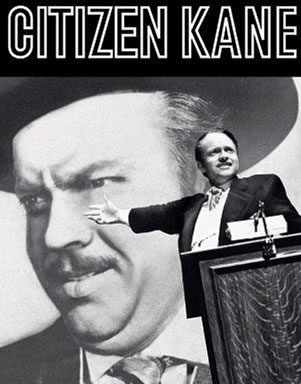ALL ABOUT CITIZEN KANE
The Backstory
 Charles Foster Kane (Orson Welles), an enormously wealthy media proprietor, has been living alone in Florida in his vast palatial estate Xanadu for the last years of his life, with a "No trespassing" sign on the gate. He dies in a bed while holding a snow globe and utters "Rosebud..."; the globe slips from his dying hand and smashes. Kane's death then becomes sensational news around the world. Newsreel reporter Jerry Thompson (William Alland) tries to find out about Kane's private life and, in particular, to discover the meaning behind his last word. The reporter interviews the great man's friends and associates, and Kane's story unfolds as a series of flashbacks. Thompson approaches Kane's second wife, Susan Alexander (Dorothy Comingore), now an alcoholic who runs her own club, but she refuses to tell him anything. Thompson then goes to the private archive of Walter Parks Thatcher (George Coulouris), a deceased banker who served as Kane's guardian during his childhood and adolescence. It is through Thatcher's written memoirs that Thompson learns about Kane's childhood. Thompson then interviews Kane's personal business manager Mr. Bernstein (Everett Sloane), best friend Jedediah Leland (Joseph Cotten), Susan for a second time, and Kane's butler Raymond (Paul Stewart) at Xanadu.
Charles Foster Kane (Orson Welles), an enormously wealthy media proprietor, has been living alone in Florida in his vast palatial estate Xanadu for the last years of his life, with a "No trespassing" sign on the gate. He dies in a bed while holding a snow globe and utters "Rosebud..."; the globe slips from his dying hand and smashes. Kane's death then becomes sensational news around the world. Newsreel reporter Jerry Thompson (William Alland) tries to find out about Kane's private life and, in particular, to discover the meaning behind his last word. The reporter interviews the great man's friends and associates, and Kane's story unfolds as a series of flashbacks. Thompson approaches Kane's second wife, Susan Alexander (Dorothy Comingore), now an alcoholic who runs her own club, but she refuses to tell him anything. Thompson then goes to the private archive of Walter Parks Thatcher (George Coulouris), a deceased banker who served as Kane's guardian during his childhood and adolescence. It is through Thatcher's written memoirs that Thompson learns about Kane's childhood. Thompson then interviews Kane's personal business manager Mr. Bernstein (Everett Sloane), best friend Jedediah Leland (Joseph Cotten), Susan for a second time, and Kane's butler Raymond (Paul Stewart) at Xanadu.
Road to Riches
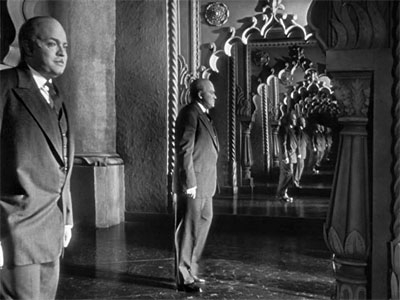 Flashbacks reveal that Kane's childhood was spent in poverty in Colorado (his parents ran a boarding house), until the "world's third largest gold mine" was discovered on the seemingly worthless property his mother had acquired. He is forced to leave his mother (Agnes Moorehead) when she sends him away to the East Coast of the U.S. to live with Thatcher, to be educated. After gaining full control over his possessions at the age of 25, Kane enters the newspaper business with sensationalized yellow journalism. He takes control of the newspaper, the New York Inquirer, and hires all the best journalists. His attempted rise to power is documented, including his manipulation of public opinion for the Spanish American War; his first marriage to Emily Monroe Norton (Ruth Warrick), a President's niece; and his campaign for the office of governor of New York State, for which alternative newspaper headlines are created depending on the result.
Flashbacks reveal that Kane's childhood was spent in poverty in Colorado (his parents ran a boarding house), until the "world's third largest gold mine" was discovered on the seemingly worthless property his mother had acquired. He is forced to leave his mother (Agnes Moorehead) when she sends him away to the East Coast of the U.S. to live with Thatcher, to be educated. After gaining full control over his possessions at the age of 25, Kane enters the newspaper business with sensationalized yellow journalism. He takes control of the newspaper, the New York Inquirer, and hires all the best journalists. His attempted rise to power is documented, including his manipulation of public opinion for the Spanish American War; his first marriage to Emily Monroe Norton (Ruth Warrick), a President's niece; and his campaign for the office of governor of New York State, for which alternative newspaper headlines are created depending on the result.
Unlucky in Love
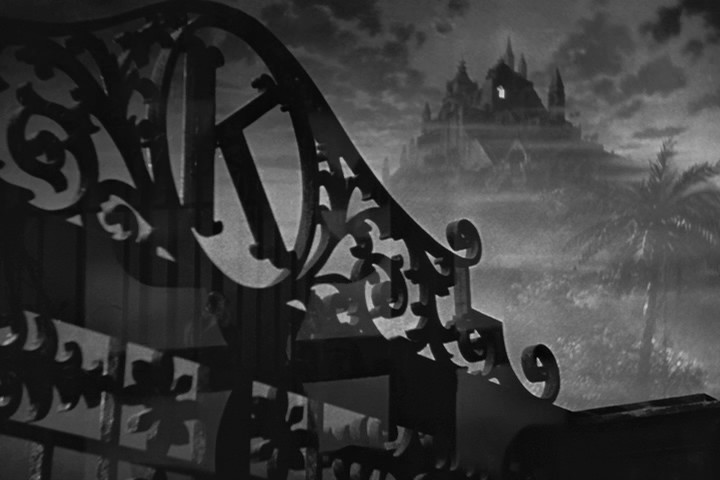 Kane's marriage disintegrates over the years, and he begins an affair with Susan Alexander. Both his wife and his opponent discover the affair, simultaneously ending his marriage and his political career. Kane marries his mistress, and forces her into an operatic career for which she has no talent or ambition. Kane finally allows her to abandon her singing career after she attempts suicide, but after a span of time spent in boredom and isolation in Xanadu, she ultimately leaves him.
Kane's marriage disintegrates over the years, and he begins an affair with Susan Alexander. Both his wife and his opponent discover the affair, simultaneously ending his marriage and his political career. Kane marries his mistress, and forces her into an operatic career for which she has no talent or ambition. Kane finally allows her to abandon her singing career after she attempts suicide, but after a span of time spent in boredom and isolation in Xanadu, she ultimately leaves him.
Lonely at the Top
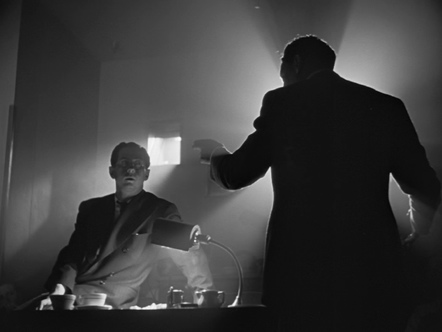
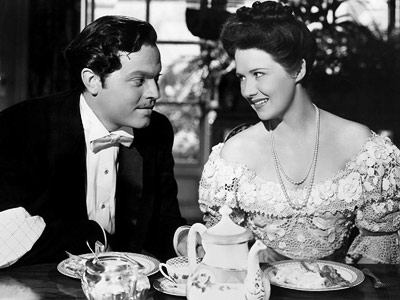 Flashbacks reveal that Kane's childhood was spent in poverty in Colorado (his parents ran a boarding house), until the "world's third largest gold mine" was discovered on the seemingly worthless property his mother had acquired. He is forced to leave his mother (Agnes Moorehead) when she sends him away to the East Coast of the U.S. to live with Thatcher, to be educated. After gaining full control over his possessions at the age of 25, Kane enters the newspaper business with sensationalized yellow journalism. He takes control of the newspaper, the New York Inquirer, and hires all the best journalists. His attempted rise to power is documented, including his manipulation of public opinion for the Spanish American War; his first marriage to Emily Monroe Norton (Ruth Warrick), a President's niece; and his campaign for the office of governor of New York State, for which alternative newspaper headlines are created depending on the result.
Flashbacks reveal that Kane's childhood was spent in poverty in Colorado (his parents ran a boarding house), until the "world's third largest gold mine" was discovered on the seemingly worthless property his mother had acquired. He is forced to leave his mother (Agnes Moorehead) when she sends him away to the East Coast of the U.S. to live with Thatcher, to be educated. After gaining full control over his possessions at the age of 25, Kane enters the newspaper business with sensationalized yellow journalism. He takes control of the newspaper, the New York Inquirer, and hires all the best journalists. His attempted rise to power is documented, including his manipulation of public opinion for the Spanish American War; his first marriage to Emily Monroe Norton (Ruth Warrick), a President's niece; and his campaign for the office of governor of New York State, for which alternative newspaper headlines are created depending on the result.
Man with Everything and Nothing
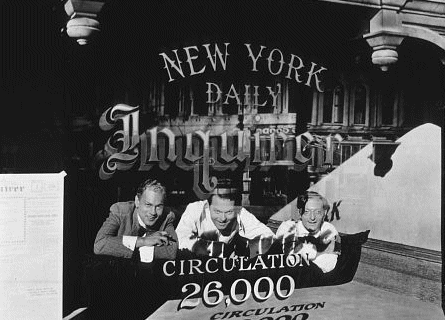
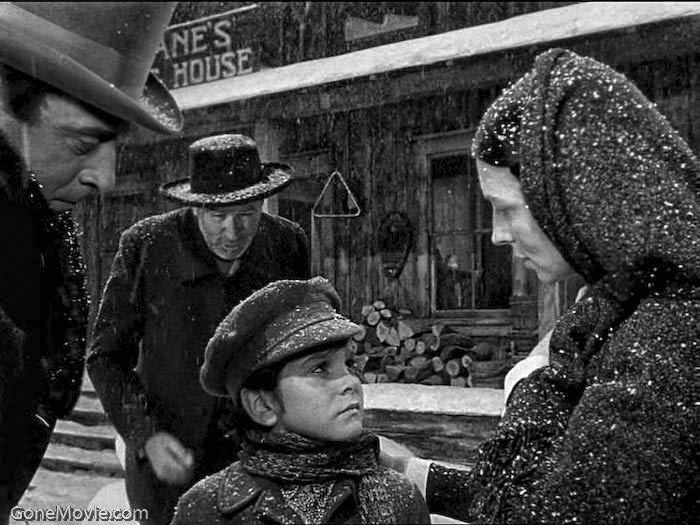 At Xanadu, Kane's vast number of belongings are being catalogued, ranging from priceless works of art to worthless furniture. During this time, Thompson finds that he is unable to solve the mystery and concludes that "Rosebud" will forever remain an enigma. He theorizes that "Mr. Kane was a man who got everything he wanted, and then lost it. Maybe Rosebud was something he couldn't get, or something he lost."
At Xanadu, Kane's vast number of belongings are being catalogued, ranging from priceless works of art to worthless furniture. During this time, Thompson finds that he is unable to solve the mystery and concludes that "Rosebud" will forever remain an enigma. He theorizes that "Mr. Kane was a man who got everything he wanted, and then lost it. Maybe Rosebud was something he couldn't get, or something he lost."
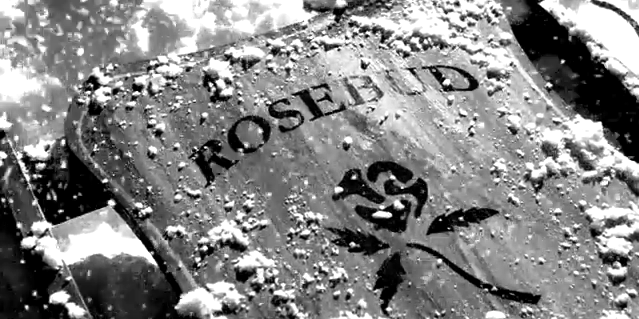
In the ending of the film, it is revealed to the audience that Rosebud was the name of the sled from Kane's childhood – an allusion to the only time in his life when he was truly happy. The sled, thought to be junk, is burned and destroyed in a basement furnace by Xanadu's departing staff.
Arguably the greatest of American films, Orson Welles's 1941 masterpiece, made when he was only 26, still unfurls like a dream and carries the viewer along the mysterious currents of time and memory to reach a mature (if ambiguous) conclusion: people are the sum of their contradictions, and can't be known easily.

Copyrights and trademarks for the film/novel, and other promotional materials are held by their respective owners and their use is allowed under the fair use clause of the Copyright Law. 2012. This gathered info is brought to you by Nareem Brotonel. Nareem Brotonel is an upcoming graphic designer. See his works at www.whatsome.deviantart.com.
